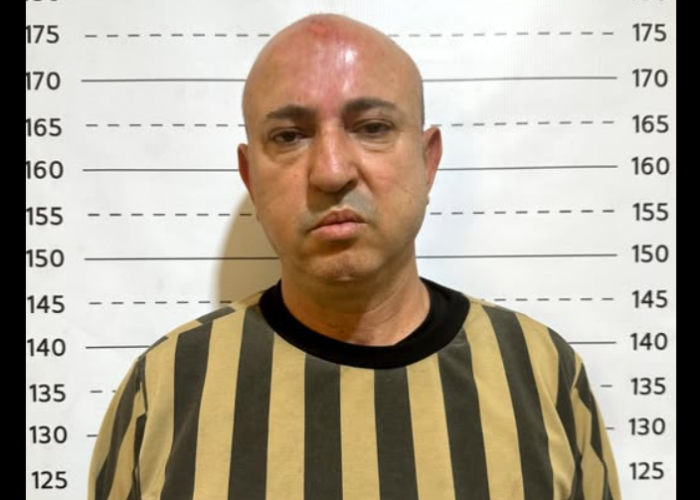In a dramatic turn emblematic of Syria’s unfolding reckoning with its brutal past, Wassim al-Assad—once a symbol of impunity, decadence, and violence—has been arrested in a carefully orchestrated security operation. The announcement by Syria’s Ministry of Interior marks a critical milestone in the country’s nascent attempt to dismantle the vestiges of the Assad regime’s entrenched criminal networks.
A cousin of the ousted president Bashar al-Assad, Wassim had long operated in the shadows of power, leveraging his family name not merely as a shield but as a license to operate with near-total impunity. His arrest in the border town of Talkalakh, close to Lebanon, followed a sting operation by the General Intelligence Directorate in cooperation with the Ministry of Interior’s Special Missions Unit.
For many Syrians, Wassim’s name is synonymous with a particular strain of corruption: theatrical, unapologetic, and drenched in violence. From orchestrating pro-regime rallies to boasting of his front-line presence, he styled himself as both enforcer and propagandist, often using social media to taunt a war-ravaged population with displays of wealth and bellicose rhetoric. But behind the bluster lay a more sinister reality—his deep entanglement in Syria’s booming narco-economy.
A Multifaceted Enforcer
Born in 1980 to Badi’ al-Assad, a marginal figure in the ruling dynasty, Wassim rose to prominence less by lineage than by ferocious loyalty. Alienated even from his own siblings, he carved out an identity centered on proximity to power. He organized support tent camps, funded loyalist singers, donned military fatigues for staged firefights, and later aligned himself with the Russia-sponsored Fifth Corps.
Yet this performative patriotism masked his more lucrative—and lethal—pursuits. At the helm of “Asad al-Sahel,” a shipping and customs company, Wassim presided over what many believe was a smokescreen for Syria’s multibillion-dollar captagon trade. Photographs of him with notorious Lebanese drug baron Nouh Zaiter—also under U.S. sanctions—became symbols of the seamless alliance between regime loyalists and regional criminal syndicates.
American and European authorities have long accused Wassim of being a key node in the Assad regime’s narcotics empire. In 2024, U.S. Treasury sanctions listed him for producing and trafficking captagon, used to finance the regime’s survival amid international isolation. Soon after, the European Union followed suit. On the ground, intelligence reports revealed his coordination with Hezbollah units in smuggling operations through coastal and central Syria.
From Symbol of Loyalty to Spectacle of Excess
Even as Syria starved, Wassim flaunted his wealth: luxury cars, gold-plated weapons, champagne-soaked nightclub scenes, and gaudy feasts—all streamed to his followers. These scenes didn’t merely provoke outrage; they embodied the obscenity of a regime that grew rich off war while its people fled and perished.
He did not stop at provocation. In the waning days of Assad rule, Wassim escalated recruitment efforts across the Alawite heartland, rallying impoverished youths with promises of monthly salaries and legal immunity. These irregular militias—allegedly affiliated with military intelligence—further blurred the lines between state, warlord, and criminal enterprise.
When the regime’s collapse became imminent, Wassim continued to deny the reality on the ground, posting videos mocking dissenters and reaffirming his faith in Assad’s staying power. In one video, he boasted from a frontline near Idlib that the province would “soon return to the embrace of the homeland.” That embrace never came.
A Reckoning Long Awaited
Wassim’s arrest is being hailed by the Syrian Ministry of Justice as a definitive break from the era of impunity. “Justice will take its course against all whose hands are stained with the blood of innocent Syrians,” said Minister Mazhar al-Wais in a public statement. The move, he added, reflects a broader governmental commitment to “build the institutions of a lawful state.”
But questions remain: Why now? And why Wassim?
Many see his arrest as a politically calculated gesture—an attempt by Syria’s transitional authorities to show resolve in addressing past crimes without confronting the entire architecture of the former regime. Yet for the Syrian public, long desensitized to the spectacle of elite privilege, the fall of Wassim al-Assad carries symbolic weight. He was not merely an enforcer of tyranny—he was its avatar.
As investigations continue, Syrians are left to hope that Wassim’s detention is not an isolated show of force but the beginning of a broader process of truth, justice, and accountability. For now, the arrest marks an open-ended conclusion to one of the regime’s most flamboyant and toxic careers.
The “Lion of the Coast” has fallen—whether justice will roar beyond him remains to be seen.


